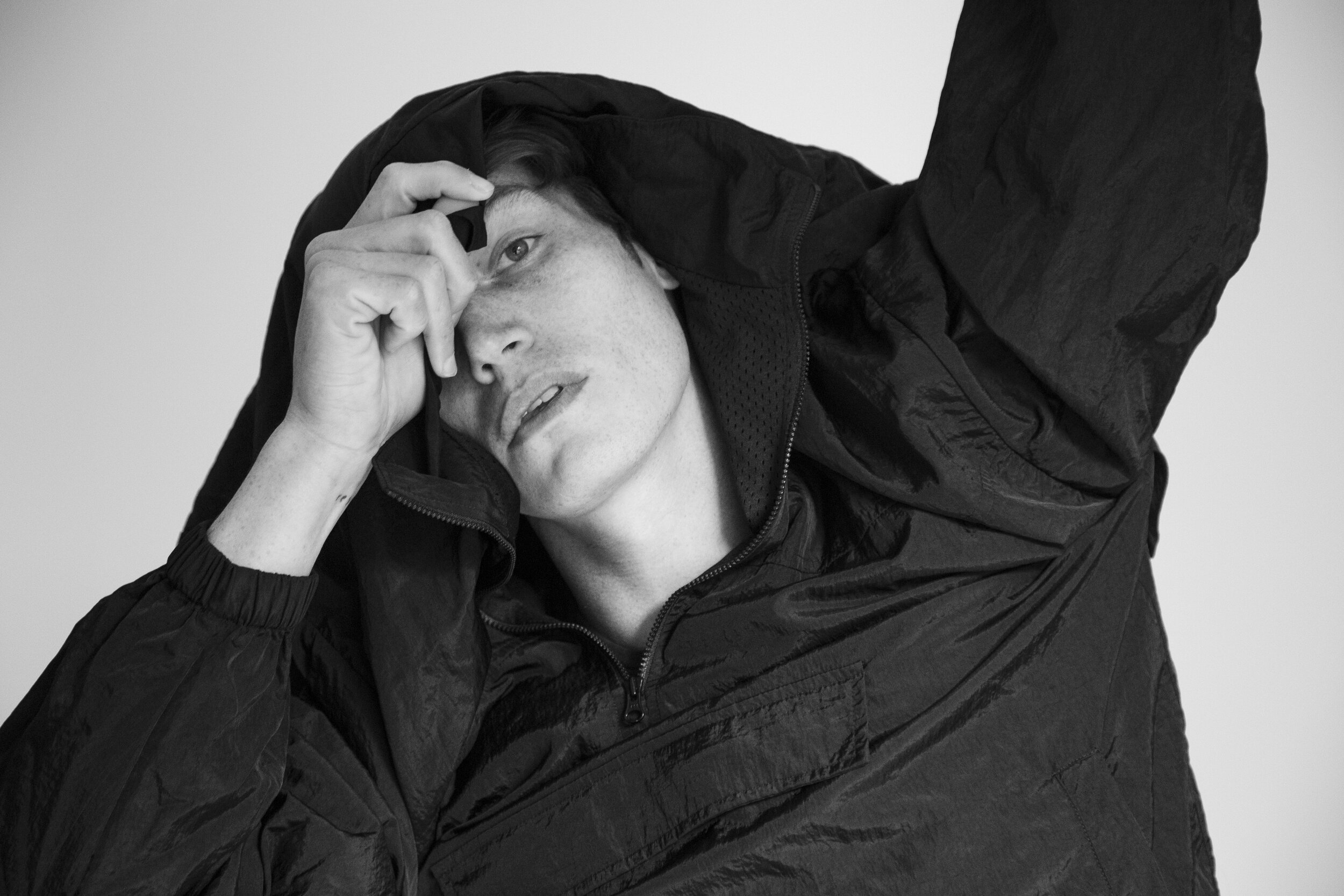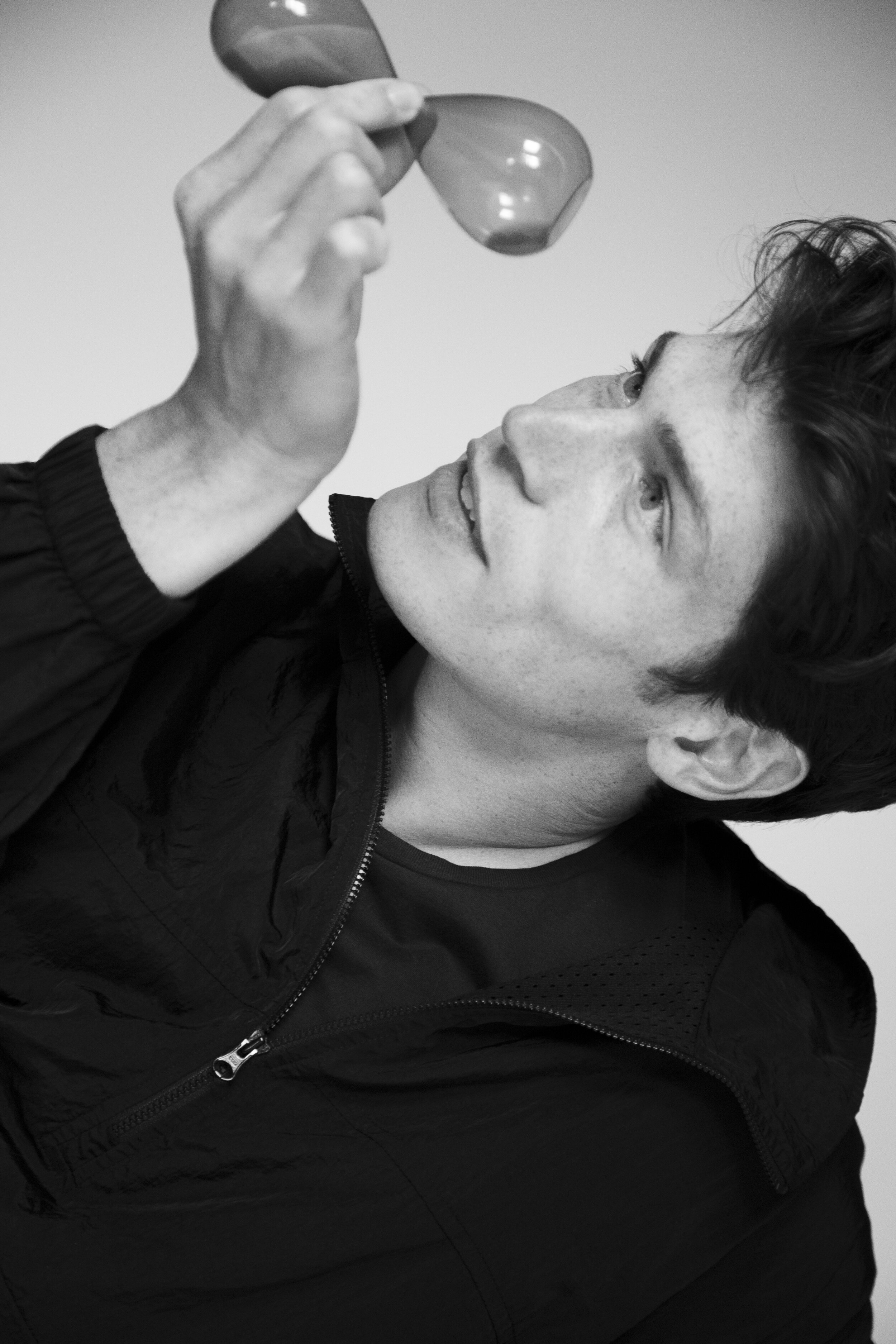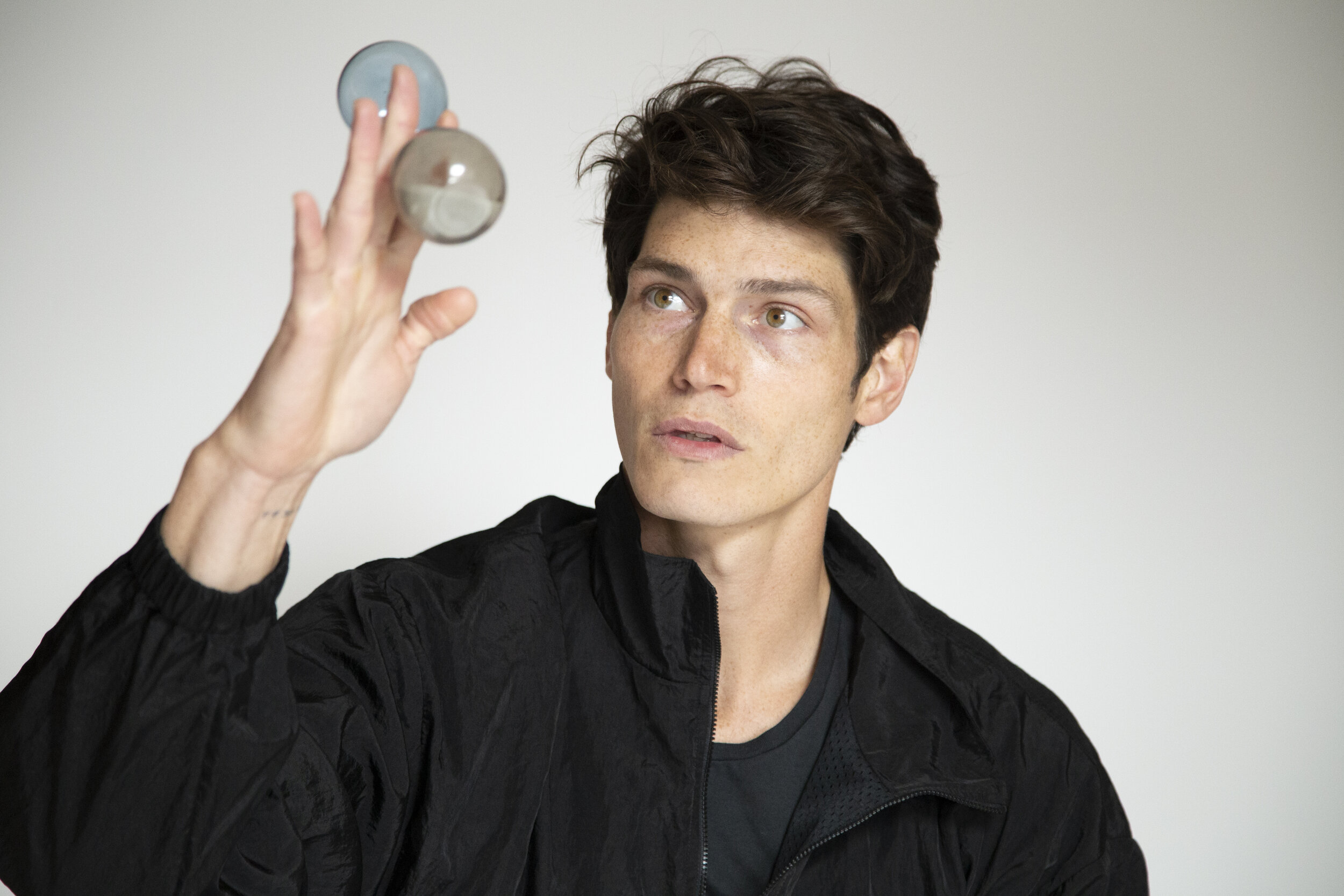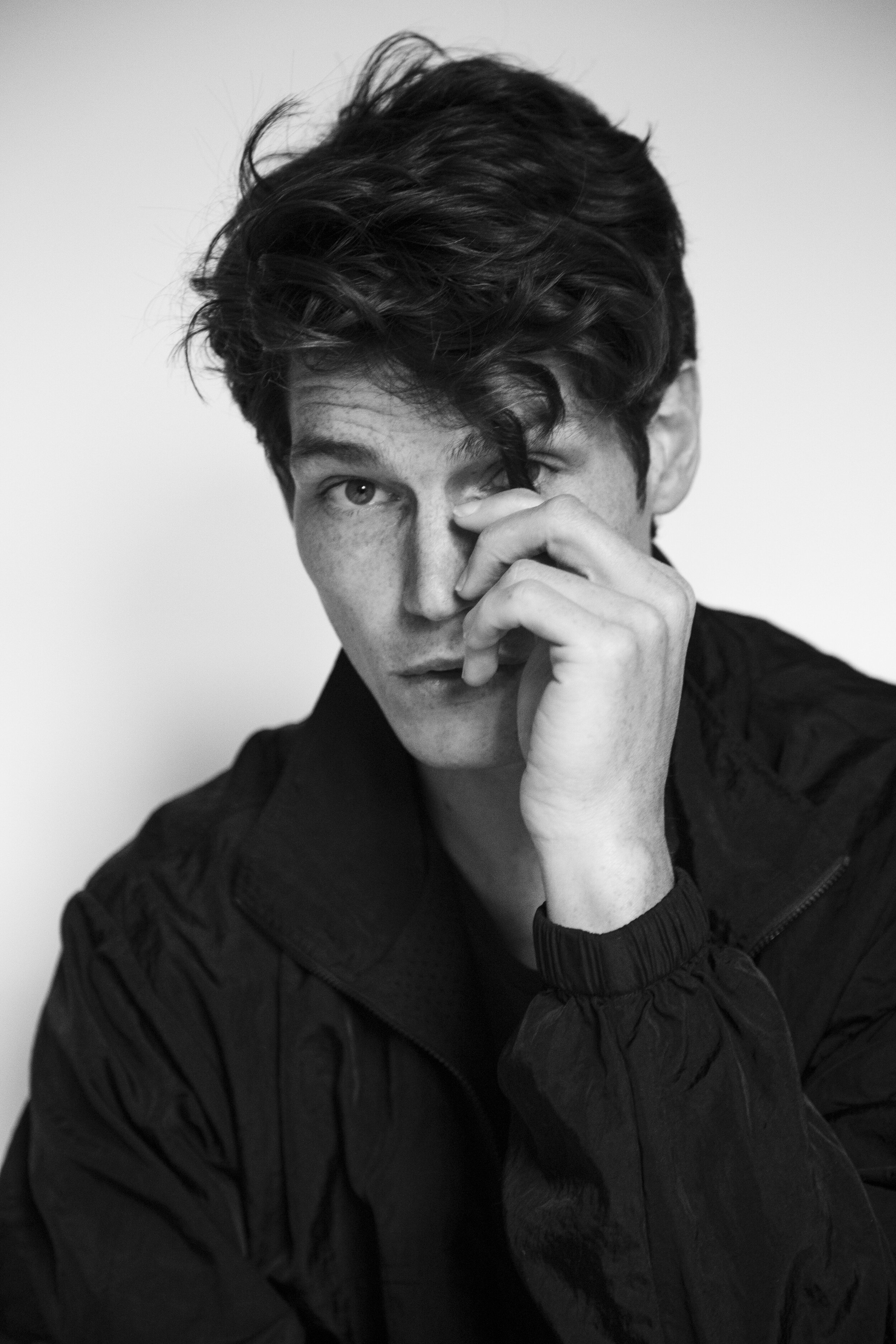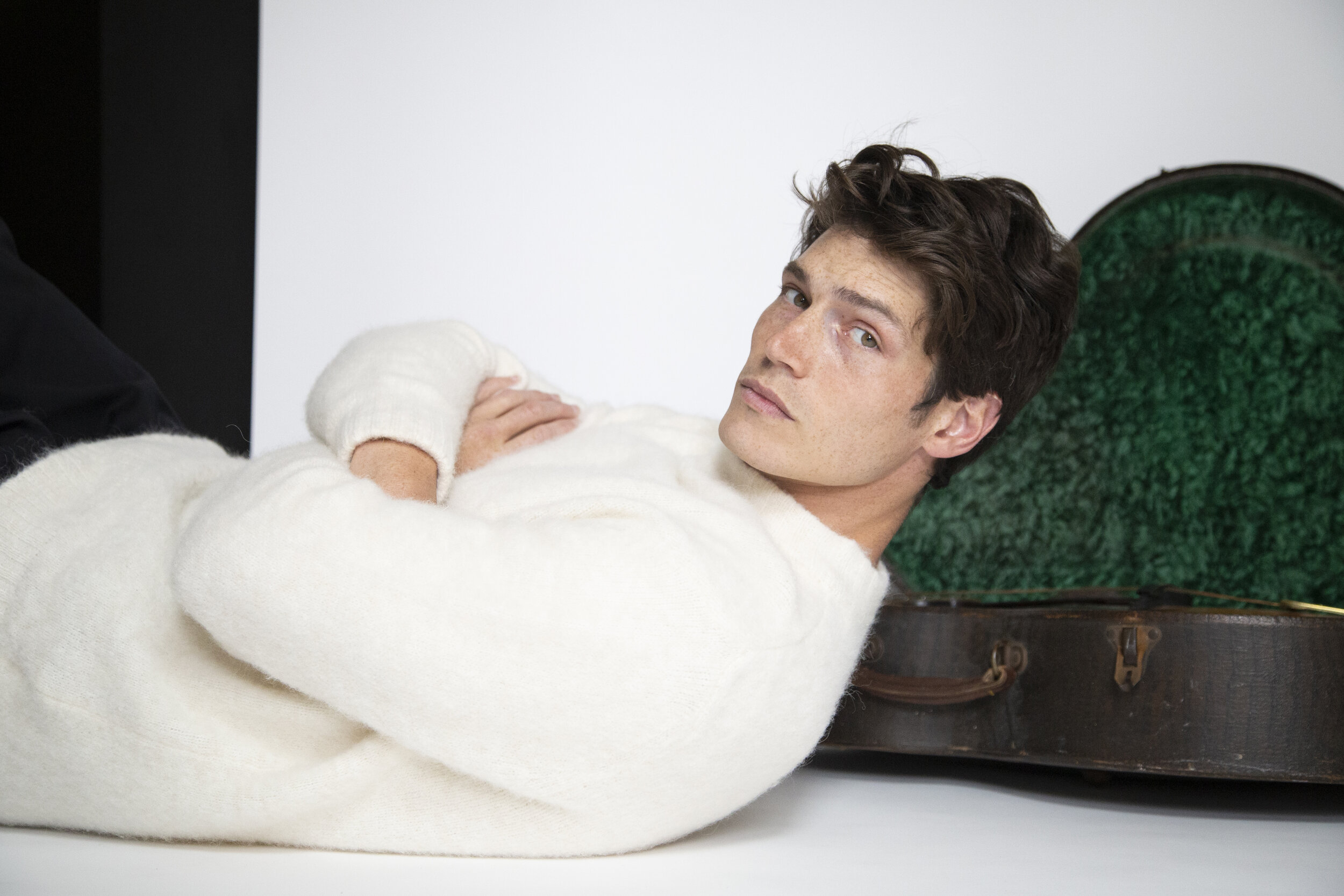British Singer-Songwriter, Sam Way On His Personal Relationship With Music And Mental Health
WITH SAM WAY
Sam Way is an independent British singer-songwriter based in London, whom you may recognize, having graced many international campaigns as a model.
Photography, Kirk Truman
Words, Brett Staniland In Conversation with Sam Way
VIEW GALLERY
Sam has been open about battling depression and using music “as medicine", to help alter mood and process mental health issues.
Born and raised in Devon in the south of England, he along with his single mother, reveled in the innocence and simplicity of life in the countryside. At the young age of 15, he was scouted by Models1 (he credits a certain green hat in Topshop for this opportunity), who he is still with today. Shortly after, he was thrusted into ad campaigns for various fashion houses gracing the runways of Europe.
However, despite his successful modeling career extending beyond the last decade, Sam identifies mostly with his musical side. “It’s much more my heart,” he explains. Sam boasts hundreds of thousands of streams on Spotify, and has recently released his latest single “Give Me Something”.
Sam managed to escape central London at the start of the Coronavirus lockdown, retreating to his hometown, where he spent time with his family.
It perhaps wasn’t until I was very depressed that I even had the vulnerability to acknowledge that this was something I needed to work on.
THE LOOK
Trousers, American Vintage
As the events and live-music scenes were reduced to essentially nothing, Sam utilized his social media and other online platforms to share a novel, live music experience with his followers - even collaborating with other musicians too.
Knowing the intensities of one of the industries that Sam works in firsthand, I wanted to learn more about his background in music and where it stemmed from as well as how he has used his music to aid his relationship with the following: mental health, wellness, and societal pressure.
As we sit and talk on the perfect autumnal Sunday afternoon, I notice Sam’s melodic and soothing voice, yet acknowledge that his words have purpose and intent. This is somewhat enhanced in his perfectly English, English accent. He speaks The Queens. This too comes across in his music which we both found hard to place in a specific, defined genre. You feel something when you listen - you get taken on a journey as the songs develop, particularly with his latest release – Give Me Something which despite its tempo, still allows the listener to reflect in self-thought.
THE LOOK
Sweater, American Vintage
BO: What was your experience with first acknowledging your wellness and mental health?
SW: It perhaps wasn’t until I was very depressed that I even had the vulnerability to acknowledge that this was something I needed to work on. Until this point, it was almost as if I was living with some sort of face mask on, in the way that I interacted with the world. It was only when I was alone that I didn’t have this mask on. It was a wake-up call. It affected my physical health and my mental health, which both deteriorated. Having the vulnerability to say to yourself “you’re not ok” was one of the hardest things. This came at the time when I had moved up to London on my own and was quite isolated from family and friends in a career that was stressful and included a lot of traveling. I was in my early twenties basically just coping until then.
The heart-body-mind-spirit relationship is really important to me. I also think of the opposite of wellness, that is, un-wellness - and disease which is a fascinating word to me when I think it is literally dis-ease. I think finding peace and contentment is a massive part of what wellness is to me. Despite all of us changing with our bodies and minds as we get older, wellness is being able to smile, do our best and accept that sometimes, it is hard work but we should be able to find peace within all of that.
In a spiritual sense, we might think we are in control but we never really are.
THE LOOK
Jacket, American Vintage
BO: Would you say being put in front of a camera at a young age contributed to the physical and mental health we speak of?
SW: As I mentioned earlier about this mask - being young and being put in front of a camera is quite a confronting experience at times. I felt like I was there to perform and I felt that it wasn’t totally my authentic self. The real self was a bit anxious and perhaps felt a bit out of his depth - almost like imposter syndrome. Like, what am I even doing there? But that was my way of coping.
Sometimes I wouldn’t be able to sleep, and it created more anxiety. A lot of it was part of my own personal development as a man and human. Being authentically me is how I am now. There are good days and bad days, and either way I’m going to do my best. And I do now love my job.
BO: How did your experience with mental health develop, eventually through into this year and with the pandemic?
SW: As soon as I was aware of my own issues with mental health, it was something I decided to take responsibility for. I was avoidant at first but once I acknowledged it, I went to see someone professionally and looked after my physical self too. I tried working as holistically as I could, found myself wanting to speak to a nutritionist, explored Chinese medicine and a whole range of alternate therapies from hypnotherapy to Kambo (frog poison). These all helped with recognizing other unhealthy patterns too from thereon. It’s a lifelong process, so we will always need to adjust. Speaking to someone is an amazing thing.
BO: Well said. How are you checking-in with those around you, and yourself?
SW: I’ve approached this in a few ways. Some can be structured in giving yourself mental-health homework as it were, often with guidance from a book or something. For me, journaling my thoughts and writing.
If there’s something I can’t talk about, I find that if I write a song, it all comes out. Just getting it out of your head can be useful. During lockdown. I was calling people up and seeing how friends were. Trying to support and look after each other. I tell people that I miss them, love them, and look forward to seeing them.
BO: Any thoughts on how the coronavirus pandemic has affected your outlook and in-look on how you see life in general?
SW: This year was a total mind-fuck. I think developing the tools to accept not being in-control in the past, really helped in dealing with how this year has gone. In a spiritual sense, we might think we are in control but we never really are. And this year has taught us life can go anywhere when you least expect it and so, to focus on the positives and count your blessings. Having music, yoga and exercise has really helped with that. Get out of your mind and into your body.
I do try and imbue some medicine in my music because that’s how I use my music too.
BO: Has the way you’ve used music changed over the last 6 months?
SW: It has definitely been a massive escape. My guitar has actually gotten so much better being able to just hone in on the craft and sit with it for a long time. The lockdown has actually been quite good for my art because I’ve been able to throw myself into it. I’ve written a few good songs, and it has been a welcome escape to voice those thoughts and feelings.
BO: What do you listen to most the time, any particular genre?
SW: I’m currently back in a super old school drum and bass phase, something I can dance around too or vibe with as I am out and about. I also like piano music and very beautiful compositions. I lean away from the conventional pop and top 40 since it’s not something I’m drawn to. I have always been a fan of electro music and I think you can hear that influence coming through strongly with my latest song, “Give Me Something”.
BO: How do you think people feel when they listen to your music? How do you want them to feel?
SW: When I ask people this, I get such a mixed response. Sometimes I get messages out of the blue saying things like “this song really helped me, and we don’t even know each other.” I guess I love to offer music that taps into all the feels. People laughing, dancing and making love to my music is the dream. My ultimate hope is that the meaning and intention in the music is experienced as an art form. I do try and imbue some medicine in my music because that’s how I use my music too.
BO: Your latest single “Give me something” has a nice blend of feelings throughout. It’s especially uplifting and feels really good on the chorus. Seems to resonate with all of what you’ve been talking about. Tell me about it the single from your point of view.
SW: I originally wrote “Give Me Something” to express the side of me that was feeling a sense of defeat in my personal life, and that change needed to occur. Then the pandemic came along and everything started to change in so many ways, so the meaning of the song grew and transformed with me. It strikes a really powerful human chord. I think the accompanying film really shows that too.
BO: Do you listen to your own music often?
SW: Yeah, sometimes I’ll indulge. I feel proud when I listen back and remember all the people who worked on the record. And have a little bop around!





